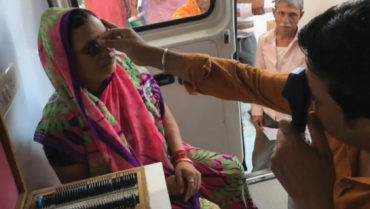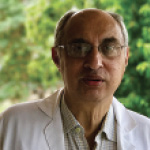
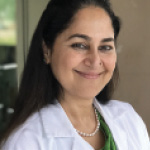
Arunodaya Charitable Trust (ACT) was born out of our dream to turn back the tide of curable blindness engulfing New Delhi/Gurugram (Haryana), India, where we practice. Despite a dramatic shift in the field of cataract surgery from intracapsular cataract extraction to phacoemulsification, access to upgraded technology was far too expensive for community-based eye care services. This led us to develop a hybrid model in which the payment for services by approximately 30% of our patients generates the revenue necessary to provide free or nominally priced care for the needy remaining 70% of our patients.
Arunodaya Deseret Eye Hospital (ADEH), a state-of-the-art tertiary eye care facility, was founded in 2005. Mobile teams provide eye care services at camps located in rural villages of Haryana that surround the hospital (Figure at outset and Figure 1).
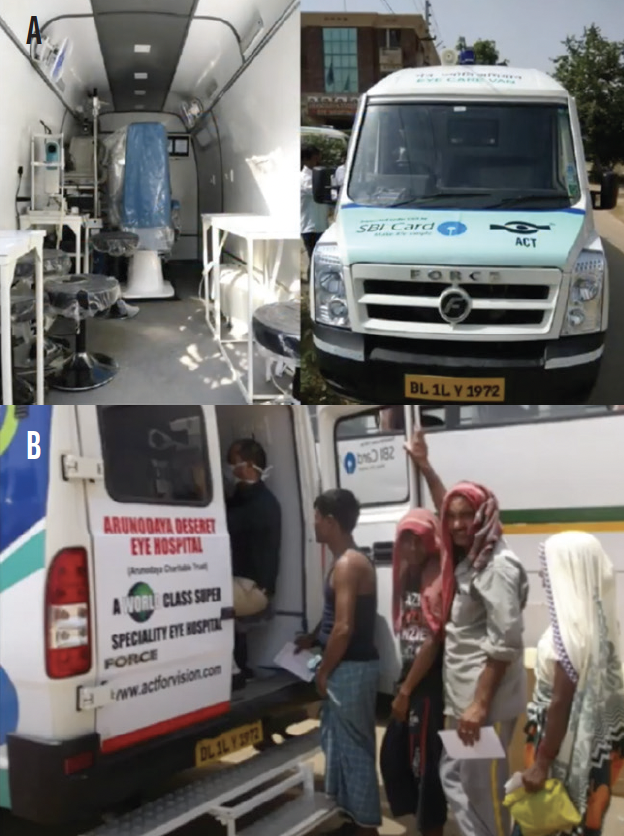
Figure 1. ADEH’s mobile eye care van (A). Patients wait to undergo an eye exam (B).
CHALLENGES
Establishing and running ADEH’s hybrid system initially posed four immense challenges:
No. 1. Overcoming the skepticism of the indigent rural population regarding the motives and purpose of the ADEH teams;
No. 2. Preventing patients who could afford to pay for services from requesting free or subsidized services;
No. 3. Ensuring the sustainability of ADEH’s hybrid model as the volume of patients requiring free or subsidized services began to increase (Figure 2); and
No. 4. Providing high-quality eye care to all patients with a difference in only the indulgences and ambiance provided to paying patients.
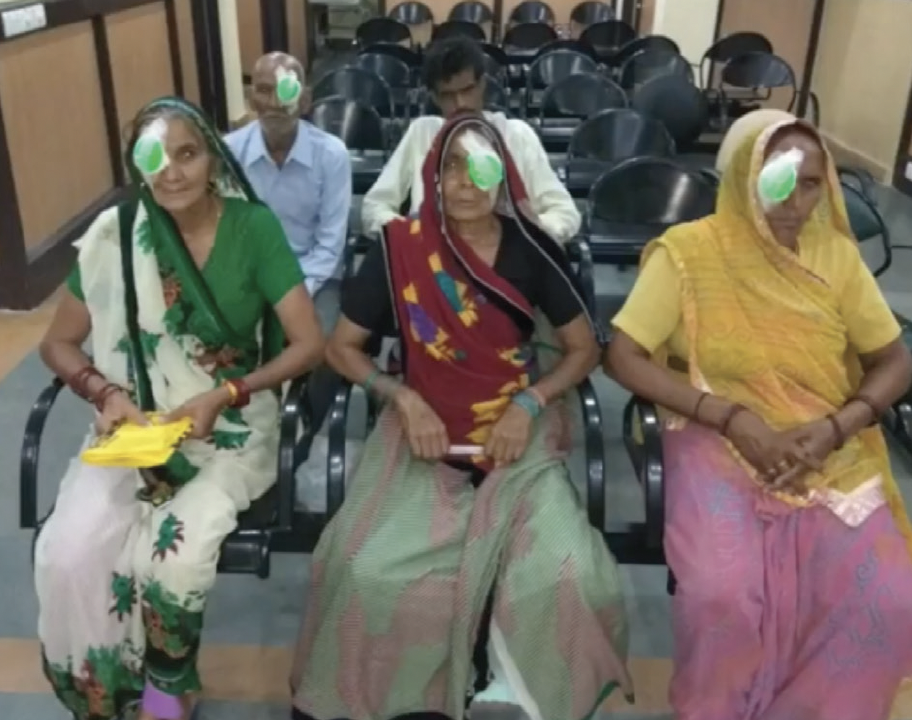
Figure 2. Patients wait to be seen after their cataract procedures.
We explain to all paying patients that a part of the professional fee they pay supports the needy. We encourage indigent patients seen in our mobile eye care clinics to access treatment either at ADEH or an alternative nonprofit facility that suits them. Patients who receive subsidized services at ADEH can receive low-cost/economical spectacles and topical eye medications.
A sliding scale of charges is in place for the use of diagnostic equipment at ADEH. Cataract surgery (either phacoemulsification or small-incision cataract surgery) is typically performed in an assembly-line fashion and subsidized by ACT donors. Our use of low-cost IOLs and disposable surgical instruments manufactured in India has made a significant, positive economic impact on ADEH’s operations.
The capital investment required for technology such as operating microscopes, phaco machines, and lasers for use in approximately 4,000 surgeries per year remains a major obstacle. The only way to raise the necessary capital is from donations or grants, which are scarce and erratic in India. This is why only 1% of ophthalmologists here, outside the government sector (ie, public health), are able to participate in community-based projects in a sustained and organized manner. Fortunately, ADEH/ACT also receives sporadic support from international nongovernmental organizations.
A TIERED DELIVERY SYSTEM
Our tiered eye care delivery system has restored the sight of more than 1.48 million indigent patients thus far. It has three tiers of service.
Tier No. 1: Mobile eye care services or rural camps. People receive vision screenings, which include a refraction and an IOP check (Figure 3). Spectacles may be dispensed. If treatment is indicated, counseling is provided, and patients receive a referral to ADEH for a free workup, surgery, or treatment, as necessary.
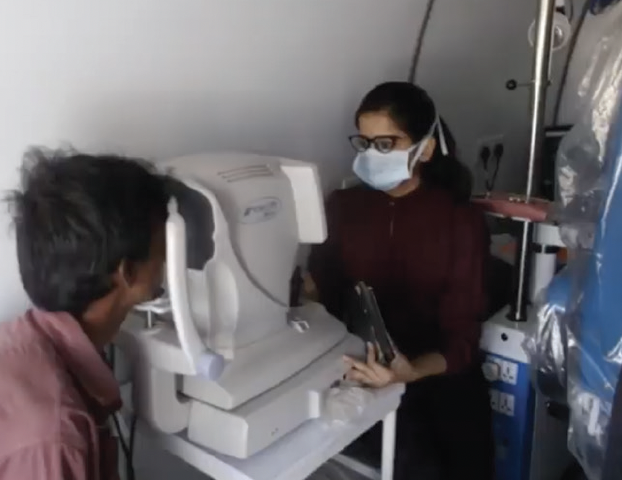
Figure 3. A patient undergoing an IOP check in the mobile eye clinic.
Tier No. 2: ADEH. One floor is dedicated to the treatment of patients referred from the camps and walk-ins who hold a government-issued card indicating that they live below the poverty line. These individuals pay a nominal fee for a consultation.
Tier No. 3: Paid or premium services. Patients of means pay the normal charges for diagnosis and treatment. They are also provided with information on ADEH’s various community-based eye care projects to attract their financial support.
CONCLUSION
Through the ACT eye care models, we work alongside other members of our community to provide comprehensive eye care to the needy. We hope to continue making a difference in the lives of our patients and finding new ways to serve them (see Additional Efforts and Offerings).
Additional Efforts and Offerings
- Arunodaya Deseret Eye Hospital (ADEH) has an eye-related preventive health care program to raise public awareness.
- The operation of an in-house optical service and pharmacy augment ADEH’s revenue. Prescription spectacles are priced on a sliding scale according to need.
- Specialty services (vitreoretinal, glaucoma, refractive surgery, pediatric ophthalmology, oculoplastics, and cornea) are all available at ADEH. Refractive surgery is a paid service.
- During the COVID-19 lockdown, ADEH staff packed 5,000 hygiene kits and distributed them in area slums, vaccination centers, and construction sites.
- ADEH offers training opportunities to residents and volunteers from India and abroad.
To learn more, visit: www.actforvision.com


